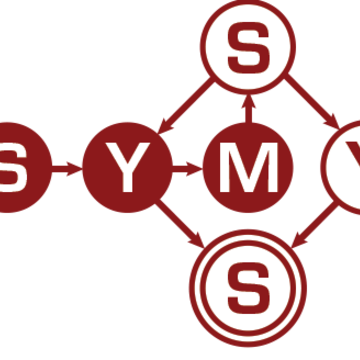SSP Forum: Elissa Li and Anna Yang (M.S. Candidates)

The
Symbolic Systems Forum
presents
Predicting Scalar Inference Strength and Alternativehood With Neural Sentence Encoders
Elissa Li (M.S. Candidate)
Symbolic Systems Program
and
Miscommunication Repair Strategies in Survey Chatbots
Anna Yang (M.S. Candidate)
Symbolic Systems Program
Monday, May 3, 2021
2:30pm - 3:30 pm
Join from PC, Mac, Linux, iOS or Android (requires logging in to a Zoom account): https://stanford.zoom.us/j/99713091022?pwd=b0hna3VRUkFWWHl0TUEwcTRQYktwQT09
ABSTRACTS:
(1) Elissa Li, Predicting Scalar Inference Strength and Alternativehood With Neural Sentence Encoders (Primary Advisor: Judith Degen, Linguistics Department; Second Reader: Sebastian Schuster, Linguistics Department, New York University)
Scalar inference is the interpretation of a less informative term to also mean the negation of a more informative alternative. The strength of these inferences is often sensitive to context and the presence of linguistic cues — for example, the presence of “either” in “You can have either the soup or the salad” can be taken as negating the stronger alternative, “You can have the soup and the salad.” Neural sentence encoders have been shown to successfully predict the strength of certain scalar inferences (in particular, from “some” to “not all”). In this work, we explore whether this finding is generalizable across other scalar inferences. We find that a BERT-based LSTM model struggles with predicting inference strength from “or” to “not both” (r=0.45), due to the relative pragmatic complexity of “or” vs. “some”. Next, we explore the extent to which BERT-based models are useful for predicting the availability of alternatives. We find that a BERT-based masked language model successfully predicts the categorical availability of alternatives for both “or” and “some”, indicating that BERT captures qualitative information about alternativehood, but that this information does not meaningfully correlate with inference strength.
(2) Anna Yang, Miscommunication Repair Strategies in Survey Chatbots (Primary Advisor: Michael Bernstein, Computer Science Department; Second Reader: Jeff Shrager, Symbolic Systems Program)
Miscommunication occurs often in conversation. While humans often use various repair strategies to fix miscommunication that occurs in human-human speech, in what is called conversational repair, many chatbots currently fail at this miscommunication repair, or conduct repair in ways that make speech very unnatural. This unnatural repair may lead to negative user experiences. Drawing on previous research into user experience of bots and conversational repair, we explore the types of miscommunication that may occur between a task-oriented survey chatbot and a user. We aim to identify repair strategies that are most natural in conversation, leading to more positive interactions between chatbots and users.
A NOTE ON THE RECORDING OF EVENTS:
If a decision has been made in advance to record an event and to make it available for later public viewing, the event announcement will usually state this. In many cases, however, decisions to record, and/or to make a recording available publicly, are not finalized before an event is announced. Availability decisions for recordings are often subject to what speakers prefer after an event has concluded, among other considerations that may include usage rights for material used in an event, as well as the need for, and practicality of, editing. When recordings are made publicly available, they will be linked within the original event announcement on the Symsys website in the days or weeks following an event. Unfortunately, we cannot follow up on individual requests for more information about whether and when a recording may become available if it is not yet posted publicly.